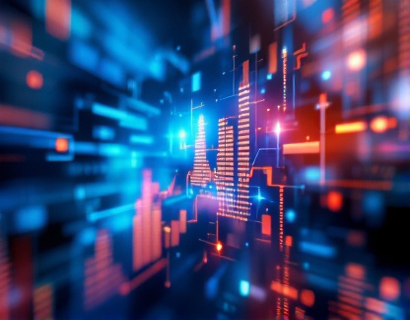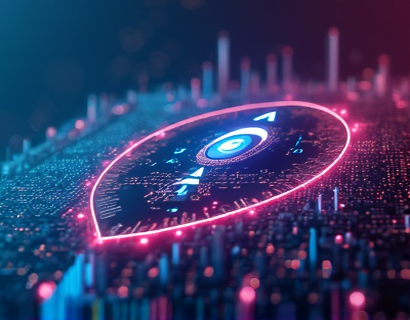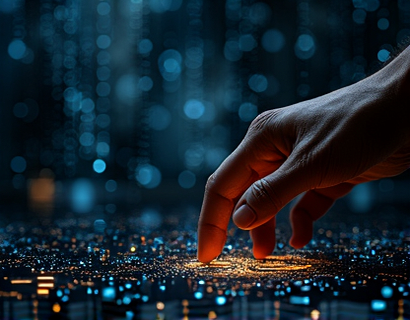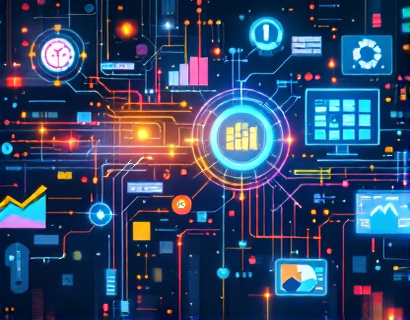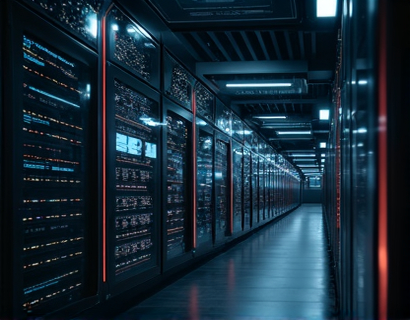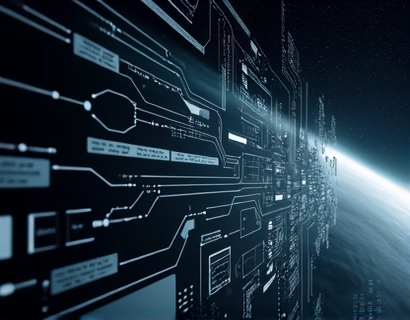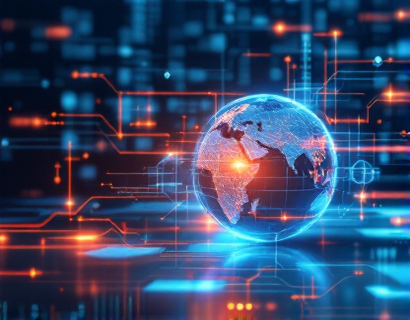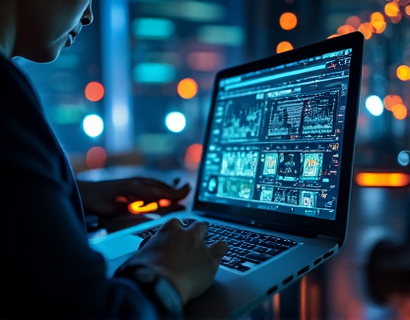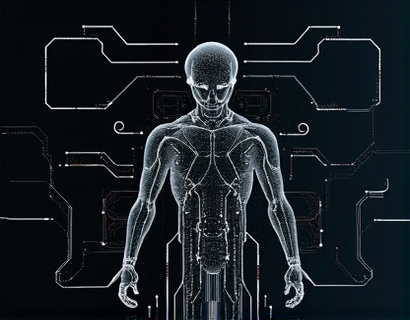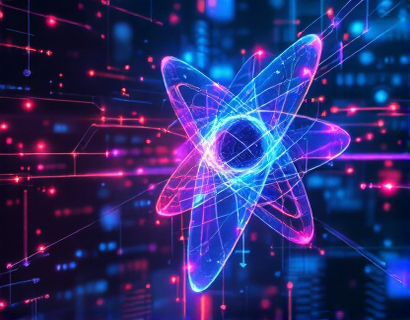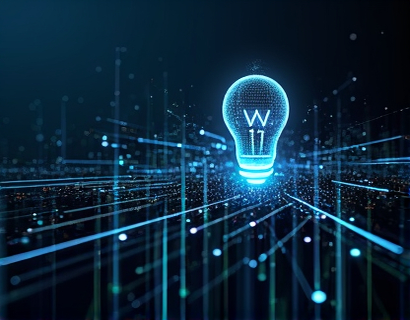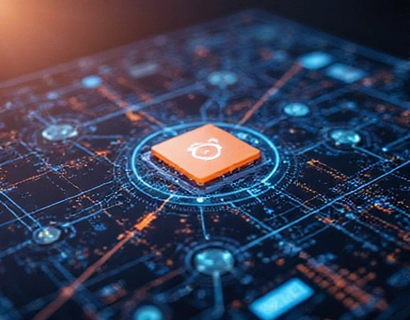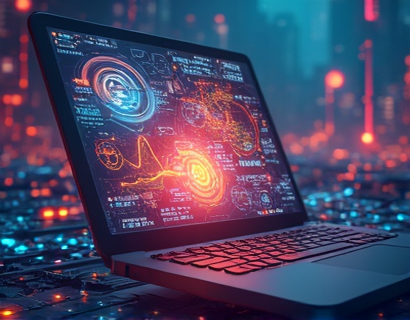Decentralized AI: Transforming Ucosystem Applications with Crypto Innovation
The integration of cryptocurrency and artificial intelligence (AI) is ushering in a new era of digital innovation, particularly within the realm of decentralized applications and services. This convergence is not just a technological curiosity but a transformative force that is revolutionizing how we approach productivity, efficiency, and daily tasks. As we delve into this topic, we will explore the latest advancements and the profound impact these technologies are having on various sectors, from finance to healthcare, and beyond.
The foundation of this transformation lies in the unique properties of blockchain technology, which underpins cryptocurrency. Blockchain's decentralized, transparent, and secure nature provides an ideal framework for AI applications that require trust, integrity, and reliability. By leveraging blockchain, decentralized AI systems can operate without the need for central authorities, reducing the risk of data breaches and ensuring that user data remains private and secure.
One of the key benefits of decentralized AI is the democratization of access to advanced computational resources. Traditionally, AI development and deployment have required significant financial investment in hardware and infrastructure. Decentralized platforms, however, allow developers and users to access these resources through token-based economies, making high-performance AI tools accessible to a broader audience. This shift not only lowers barriers to entry but also fosters a more inclusive and diverse ecosystem of innovators.
Another critical aspect of decentralized AI is the enhancement of data privacy and user control. In centralized systems, user data is often collected and stored by a single entity, making it vulnerable to misuse and unauthorized access. Decentralized AI solutions, on the other hand, enable users to maintain control over their data, deciding who can access it and for what purposes. This is achieved through mechanisms like zero-knowledge proofs and homomorphic encryption, which allow computations to be performed on encrypted data without revealing the underlying information.
The synergy between cryptocurrency and AI also brings about new opportunities in the realm of incentivization. Traditional AI systems rely on centralized entities to manage and reward contributors, often leading to inefficiencies and biases. Decentralized platforms use cryptocurrency to create token-based incentive structures that align the interests of various stakeholders. For instance, data providers, model trainers, and application users can all be rewarded with tokens for their contributions, creating a more equitable and motivating environment.
Let's delve deeper into how these technologies are transforming specific applications. In the financial sector, decentralized AI is revolutionizing trading and investment strategies. Smart contracts on blockchain platforms can execute complex trading algorithms based on real-time market data, optimized by AI models. This combination reduces human error, increases transaction speed, and opens up new possibilities for algorithmic trading. Moreover, decentralized finance (DeFi) platforms are leveraging AI to offer personalized financial advice, risk assessment, and fraud detection, all while maintaining transparency and security.
In the healthcare industry, the integration of AI and blockchain is enhancing patient care and research. Decentralized health records, secured by blockchain, ensure that patient data is tamper-proof and accessible only to authorized parties. AI algorithms can analyze this data to identify patterns, predict disease outbreaks, and personalize treatment plans. For example, AI-powered diagnostic tools can process medical images and patient histories on a decentralized network, providing accurate and timely insights without compromising patient privacy.
The Internet of Things (IoT) is another area where decentralized AI is making significant strides. IoT devices generate vast amounts of data that, when processed by AI, can lead to smarter and more efficient systems. Decentralized AI can manage and analyze this data in a privacy-preserving manner, enabling applications like smart cities, autonomous vehicles, and industrial automation. By removing the need for centralized data processing, these systems reduce latency and improve reliability, making them ideal for real-time decision-making.
In the realm of content creation and distribution, decentralized AI is transforming how media is produced and consumed. Blockchain-based platforms can ensure that creators receive fair compensation for their work, while AI can assist in content moderation, recommendation systems, and even the generation of new content. For instance, AI-driven tools can analyze user preferences and generate personalized content recommendations, enhancing the user experience and driving engagement.
The environmental impact of decentralized AI should not be overlooked. Traditional AI training involves massive energy consumption, often powered by non-renewable sources. Decentralized AI platforms can leverage renewable energy sources and optimize resource usage through distributed computing. This not only reduces the carbon footprint but also makes AI more sustainable and accessible. Additionally, blockchain's transparency can help track and verify the environmental impact of AI operations, promoting responsible practices.
Looking ahead, the future of decentralized AI holds immense potential. As blockchain technology continues to mature, we can expect more sophisticated and efficient decentralized AI systems. Advancements in quantum computing and edge computing will further enhance the capabilities of these systems, enabling more complex and real-time AI applications. The integration of AI with other emerging technologies like augmented reality (AR) and virtual reality (VR) will also open up new frontiers, creating immersive and interactive experiences powered by decentralized infrastructure.
However, the path to widespread adoption is not without challenges. Regulatory frameworks need to evolve to accommodate the unique aspects of decentralized AI. Issues such as data governance, intellectual property rights, and cross-border legal compliance must be addressed to ensure a balanced and fair ecosystem. Collaboration between technologists, policymakers, and industry stakeholders is crucial to navigate these challenges and harness the full potential of decentralized AI.
In conclusion, the convergence of cryptocurrency and AI is driving a paradigm shift in how we build and interact with digital applications. By leveraging the strengths of both technologies, we can create more secure, transparent, and user-centric systems that enhance productivity and simplify daily tasks. As we continue to explore and innovate in this space, the possibilities are endless, promising a future where technology serves humanity in the most empowering and equitable ways.




